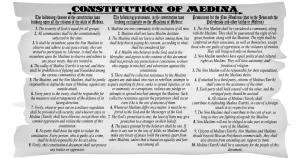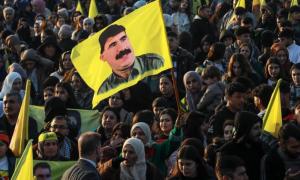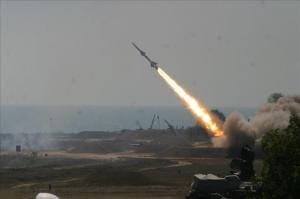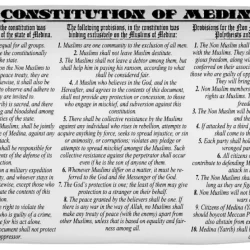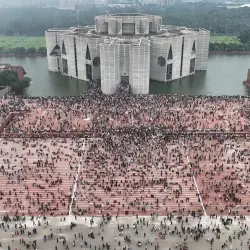Imagine you walk through the streets of Paris on July 14, 1789. As you watch the throng advance toward the Bastille, a mixture of exhilaration and horror permeates the air. Soldiers are posted to defend the prison, a symbol of the monarchy’s tyrannical authority, but the populace is adamant about tearing it down. The tension grows as the throng draws near, and you can sense the revolution’s momentum growing.
People rush in, chanting for justice and freedom, as the Bastille’s gates suddenly burst. You can hear the echo of their voices in the streets and sense the revolution taking root. This marked the beginning of a crucial era in French history, a period of transition and turmoil that would impact not only the country but also the entire world. The French people gained the Republic of France, their own government, as a result of their revolution.
But how did things get up in this state? What was the French Revolution actually about? Why did it take place? What caused it, who is responsible for making it happen, and what was the result? In order to fully address this query, we will also examine Napoleon Bonaparte’s participation, specifically how he became involved and rose to the top of the revolution’s achievements. Let’s get going.
What is the French Revolution?
What is the French Revolution, first of all? The French Revolution, which put an end to absolute monarchy and ushered in democracy, was a turning point in European history. The storming of the Bastille, an infamous jail in Paris, in 1789 was a significant turning point in European history.
The French people revolted against their rulers and demanded reform because they were fed up with the absolute monarchy and the absence of political representation. The ideals of Enlightenment intellectuals like Voltaire, Montesquieu, and Jean-Jacques Rousseau helped to spark the revolution, which was led by individuals like Maximilien Robespierre, Georges Danton, and Jean-Paul Marat.
The French Revolution began in 1789 and lasted for ten years. During this time, the French populace rebelled against the government and fought for their liberties. Bloody incidents like the collapse of the Bastille, the Reign of Terror, and King Louis XVI’s execution served as markers for the revolution. In spite of these difficulties, the revolution eventually succeeded in toppling the absolute monarchy and installing a democratic administration.
Background of the French Revolution
Before the French Revolution, France was dealing with a variety of long-standing political, social, and economic issues. Due to costly wars and a bloated government bureaucracy, the nation was badly in debt, and the people with low-income and middle classes bore a disproportionate amount of the burden of taxation. At the same time, the absolute monarchy was useless and feeble, and the nobility possessed an excessive amount of riches and power.
The lack of political representation and fundamental rights was driving the ordinary people to despair as they struggled with poverty, disease, and famine. This was a period of intense volatility and unrest that was brought on by a number of political, social, and economic forces. These elements came together to form the ideal storm that would alter the path of French history irrevocably.
Read জালিয়ানওয়ালা বাগ গণহত্যাঃ ব্রিটিশ সভ্যতার নৃশংস উপহার
Economic Factors
Economic hardship was a key factor in the people’s involvement in the revolution. The French monarchy couldn’t pay its debts because it was deeply in debt. The extravagant spending of King Louis XVI and his queen, Marie Antoinette, aggravated the financial catastrophe. The French people started to seek change as a result of their frustration with the monarchy’s poor financial management.
At the time of the revolution, the French economy was in a terrible position due to high taxes, a lack of food, and high unemployment rates. France’s populace was trying to make ends meet, and they thought that the wealthy and powerful were not doing enough to assist them, which angered and upset them. The French people’s widespread support for the revolution was a result of their dissatisfaction and fury.
Political Factors
Political unrest was one of the key political drivers of the French Revolution. The absolute monarchy in France, which granted the king total control over both the government and the populace, had grown tiresome to the populace. They believed that the monarchy did not adequately represent their interests and that a change was necessary. As a result of this unhappiness, France’s citizens started to perceive themselves as a single, cohesive nation with shared objectives.
There was the matter of French government representation. The French people were fed up with being dominated by an absolute monarchy and felt that they had no voice in how their government was run. The French people were prepared to struggle for this freedom because they want a government that upheld their principles and interests.
Social Factors
Social considerations had an equal role in the French Revolution. The wealthy nobility and clergy enjoyed a life of leisure and luxury while the rest of the populace struggled to make ends meet, creating a severe socioeconomic difference throughout France. People started to demand change because they were sick of the injustice.
Intellectual Factors
There were also substantial intellectual forces at play during the French Revolution. The Enlightenment’s emphasis on reason and individual liberties had a significant influence on the French people. People were eager to put the principles of freedom and equality advanced by intellectual giants like Jean-Jacques Rousseau, Voltaire, and Montesquieu into practice. They significantly influenced how the revolution unfolded. Their contributions and actions had a significant influence on the French Revolution.
First of all, philosopher and author Jean-Jacques Rousseau had a significant influence on the French Revolution. His writings, including as “The Social Contract” and “Emile,” encouraged the French people to value equality and individual freedom. The general and individual liberty ideals of Rousseau will have a significant influence on the French people and had a significant role in determining the direction of the revolution.
Second, Voltaire was still another key Enlightenment character. He was a philosopher, writer, and supporter of the right to free speech and religion. The French people were inspired by Voltaire’s principles of freedom and equality as well as his severe criticism of the French monarchy and the Catholic Church in his writings. His most well-known piece, “Candide,” was a parody of the political and religious establishments of the day and motivated the French people to struggle for reform.
Third, another significant Enlightenment figure was Montesquieu. In addition to being a philosopher and author, he had a significant influence on the French Revolution. “The Spirit of Laws,” Montesquieu’s most well-known work, had a significant influence on the French Revolution. The French people were motivated by this work to struggle for a government that upheld their interests and beliefs because it established the fundamentals of government, such as the separation of powers.
These elements came together to form the ideal storm that would alter the direction of French history. The deep-seated rage and dissatisfaction of the French people were the driving forces behind the French Revolution, which was unavoidable. France underwent significant transformation during the revolution, becoming a republic that upheld the interests and beliefs of its citizens.
Peoples Involvement
The French people actively participated in the revolution, and they had a significant impact on how it turned out. They formed themselves into political clubs and societies and participated in protests, marches, and demonstrations. The French people contributed to the formation of the new French Republic’s administration and helped draft a new constitution that reflected their values and interests.
Economic hardship, political unrest, and a burgeoning feeling of nationalism all played a role in the French people’s decision to take the lead in the French Revolution. The French people were instrumental in determining the course of the revolution, and their deeds contributed to a significant transformation of French society.
The French Revolution was a social and cultural revolution as well as a political one since the French people actively participated in rewriting the history of their country. The storming of the Bastille, an infamous jail in Paris, on July 14, 1789, is one of the most well-known incidents of the French Revolution. This occasion represented the populace’s resolve to topple King Louis XVI’s tyrannical rule and reclaim control of their own lives.
The Women’s March on Versailles in October 1789 is another well-known instance of the French Revolution. Thousands of women protested the food shortages and skyrocketing bread costs in a march from Paris to Versailles, pleading with King Louis XVI to act to end the crisis. The march was a potent manifestation of the populace’s will and a turning point in the revolution as the king was compelled to leave London and surrender to the National Assembly’s rule.
The creation of popular societies, usually referred to as clubs, across France is another example of how the populace participated in the revolution. These clubs were made up of regular people who met to talk politics and organize group actions like marches and demonstrations. The most well-known of these clubs was the Jacobin Club, which was founded in Paris in 1789 and played a crucial role in the revolution by giving radical leaders and thinkers a platform to influence the movement’s direction.
The French Revolt was led by political elites from the top down, but it was also a bottom-up, popular revolution. A few examples of how the French people actively participated in determining the course of the revolution and in establishing a new, more democratic, and equal society are the storming of the Bastille, the Women’s March on Versailles, and the founding of popular societies.
Napoleon’s Arrival on the scene of the French Revolution
Despite his delayed involvement in the revolution, Napoleon Bonaparte was a crucial figure in it. During the early years of the revolution, he was a young military officer who was well-known for his ambition and strategy prowess.
When he was named the head of the French army in 1796, Napoleon Bonaparte entered the scene of the French Revolution. To command the French army in a campaign against the Russians and Austrians, Napoleon was dispatched to Italy. He had great success with this effort, and he swiftly gained popularity across the country. His triumph in Italy aided in securing his ascent to power. Napoleon’s military victory over the Austrians at the time let him quickly rise to prominence as the French Revolution was still in its early phases.
Napoleon became more and more involved in the revolution as time went on, and he quickly rose to prominence in the administration. In 1799, he was proclaimed the First Consul of the French Republic and successfully led an uprising against the ruling class. He practically granted him control of the nation when he proclaimed himself Emperor of the French in 1804.
When Napoleon got to the top of the revolution by consolidating power and repressing resistance, he continued to play a significant part in it and utilized his influence to make significant changes to France’s political and social systems. He enacted several changes that contributed to the stabilization of the French economy and the establishment of law and order. He also built a new administrative system and consolidated the administration, which improved productivity and decreased corruption. Additionally, he enlarged the French empire, putting most of Europe under French rule.
Despite his accomplishments, Napoleon was a contentious figure, and many considered him a threat to the revolution’s guiding ideas. But he was able to maintain his position of authority thanks to his reforms and military successes, and he ruled France until his loss at the Battle of Waterloo in 1815.
Historical events during the French Revolution
The French Revolution was a complex and multi-faceted event that took place over several years. Here are some of the key events of the revolution, in chronological order:
The fall of the Bastille (July 14, 1789)
On this day, the populace of Paris stormed the Bastille, an infamous jail that stood for the tyrannical authority of the absolute monarchy. The fall of the Bastille was regarded as a watershed moment in French history as it signaled the start of the revolution.
The Declaration of the Rights of Man and Citizen (August 26, 1789)
The Bastille, an infamous jail that stood for the tyrannical authority of the absolute monarchy, was besieged by the people of Paris on this day. A major turning moment in French history, the fall of the Bastille signaled the start of the revolution.
Reign of Terror (1793-1794)
In an effort to crush any remaining resistance to the revolution, the radical Jacobins under the leadership of Maximilien Robespierre unleashed a wave of repression and bloodshed during this time. The King of France, Louis XVI, was guillotined in January 1793, and thousands of other individuals were put to death.
The Thermidorian Reaction (July 27, 1794)
The Reign of Terror ended with the downfall of Robespierre and the Jacobins. A more stable and moderate system of government was made possible by the Thermidorian Reaction, which happened at this very moment.
The Rise of Napoleon Bonaparte (1799)
Napoleon was a young military officer during the revolution, and following his victorious operations in Italy, he rose to fame as a national hero. He orchestrated a successful overthrow of the ruling class in 1799, and as a result, France appointed him as its first consul.
The Napoleonic Wars (1803-1815)
Napoleon used his influence to extend the French empire and unify a large portion of Europe. But this sparked a string of conflicts with other European superpowers that ultimately resulted in Napoleon’s defeat at the Battle of Waterloo in 1815.
The fall of the monarchy and the rise of the First French Republic (1792-1804)
The French Revolution caused the fall of the absolute monarchy. This was a time of significant political and social transformation, which had a significant impact on both French and global history.
The effects of this complicated and multifaceted time in French history can still be seen today. Around the world, political and social movements are still influenced by the revolution’s concepts and tenets, such as equality and freedom. Despite these obstacles, the revolution ultimately was able to topple the absolute monarchy and install a democratic administration.
The Rise of the Republic of France
A new period in French history began with the establishment of the French Republic following the revolution. The populace had built a government that served their interests and beliefs after gaining their independence. In a world where absolute monarchy had long ruled, the nascent Republic stood as a sign of hope and a lighthouse. The revolution fundamentally altered society and the populace were filled with pride and a drive to create a better future.
French society had undergone a significant upheaval as a result of the revolution. Because the previous feudal system had been overthrown, the populace was no longer constrained by its limitations. The ideas of equality and freedom had been ingrained in the hearts of the French people by the Declaration of the Rights of Man and Citizen, which had been enacted by the National Assembly during the revolution. These ideas served as the cornerstone of the new Republic and motivated a generation to work for a better future.
The emergence of the French Republic was a social and cultural revolution in addition to a political one. People were no longer merely subjects of the monarchy since they had the chance to participate in their own government. People now felt a renewed sense of civic pride and had control over their own destiny thanks to the Republic.
Achievements
People all across the world were motivated to fight for their own rights and independence by the French Revolution. It demonstrated the possibility of change and the power of unassuming individuals to affect change when they banded together. People are still motivated by the revolution’s spirit today, and its effects are being felt in the global fight for equality and human rights. Both the nation and the world were greatly impacted by it. Some of the revolution’s most important accomplishments include:
- The end of absolute monarchy and the establishment of a democratic government
- The abolition of feudalism and the creation of a more equal society
- The establishment of religious freedom and the separation of church and state
- The growth of the middle class and the rise of a new economic and political elite
- The expansion of the French empire led to increased wealth and power for the country.
Therefore, the creation of the French Republic following the revolution was a period of significant change and promise. The populace had achieved independence and had put in place a government that reflected their values and interests. The revolution fundamentally altered society and the populace were filled with pride and a drive to create a better future. People are still motivated by the revolution’s spirit today, and future generations will continue to be affected by it.




